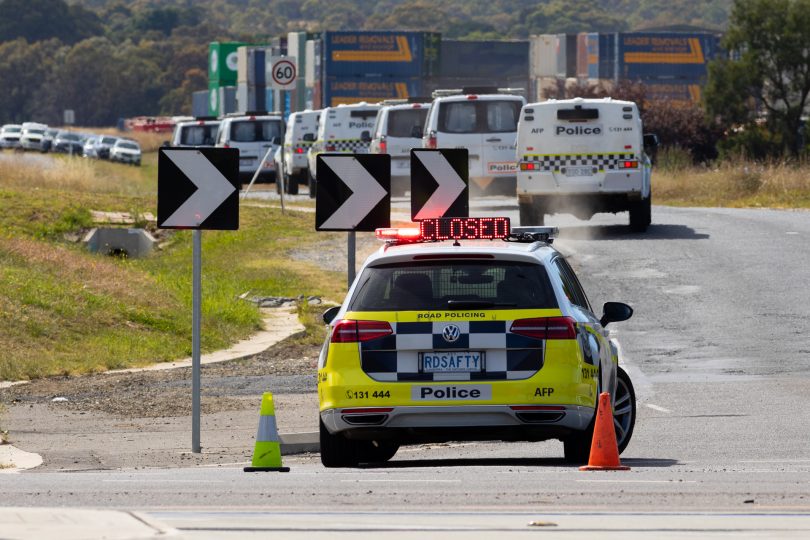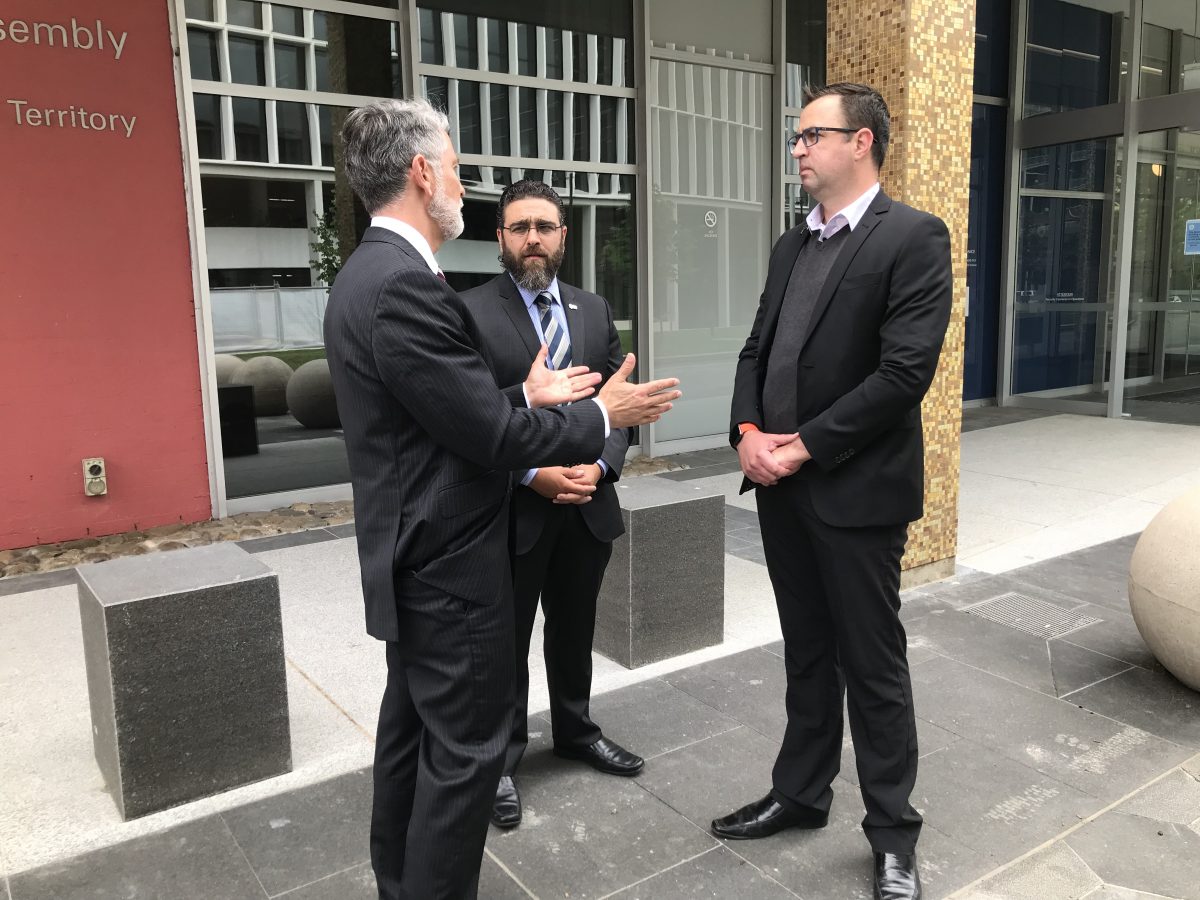
Reported crime rates in the ACT have fallen significantly in the past year. Photo: Michelle Kroll.
Crime rates are falling in the ACT, according to the latest ACT Policing quarterly statistics. But it doesn’t translate to less work for officers, says the police union.
Instead, the Australian Federal Police Association (AFPA) says officers are more and more likely to be called in to situations which do not result in a criminal conviction.
In the three months from April to June 2022, 8524 offences were recorded in Canberra – a 20 per cent decrease on the same period in 2021. However, it is up from the previous quarter (January to March) when 7607 offences were recorded.
Since the beginning of 2022, about 3000 fewer offences have been recorded than in the same period from January to the end of June last year.
Reports of every type of crime fell, with the largest decrease in the issuing of traffic infringement notices – almost 50 per cent from 2293 to 1159.
Reported sexual assaults were down by five per cent, assaults fell by about 20 per cent, burglary by almost two per cent and robbery by almost 40 per cent.
Reports of stolen motor vehicles, theft and property damage all fell by almost 12 per cent.

AFPA president Alex Caruana, with Opposition spokesperson for police Jeremy Hanson and former police officer Jason Taylor, argues it’s time to move away from crime statistics. Photo: Lottie Twyford.
AFPA president Alex Caruana says crime rates and statistics may be a good measure for the community but they don’t accurately reflect the work police officers are doing.
“Police are called to a raft of incidents where crime rate statistics isn’t applicable, such as a missing person, a mental health incident, or other incidents where no criminal offence is detected. These incidents aren’t recorded in crime rate statistics,” he says.
Mr Caruana also says as the Territory’s population continues to grow, so too do “calls to service”.
These are defined as calls to emergency operators, alarms, police radio and non-emergency calls.
The AFPA has long called for the number of Territory police on the beat to be increased. Operational police numbers per 100,000 people in 2021 were the lowest in the country (219), while the figure for non-operational staff was the fourth highest (31), according to data.
“Currently, the ACT has the lowest amount of police officers per 100,000 population, well below the Australian average,” Mr Caruana says.
“This is causing workload and mental health issues for officers and can be reflective in response times. Policing is a tough job, and it’s even more challenging when there aren’t resources on the ground.
“The ACT is also expanding geographically, new suburbs are coming online, and more housing is being built across the Territory, which means police patrol zones are increasing in size and population, yet police numbers remain the same.”
The growing communities of the Molonglo Valley and Gungahlin have called for more police resources to be allocated to them and for a greater police presence in their streets.
Mr Caruana says Canberra is a safe city to live in but predicts there will be an increase in offences such as shoplifting and petrol drive-offs in coming months due to the worsening economic climate.
ACT Policing has been contacted for comment.





















